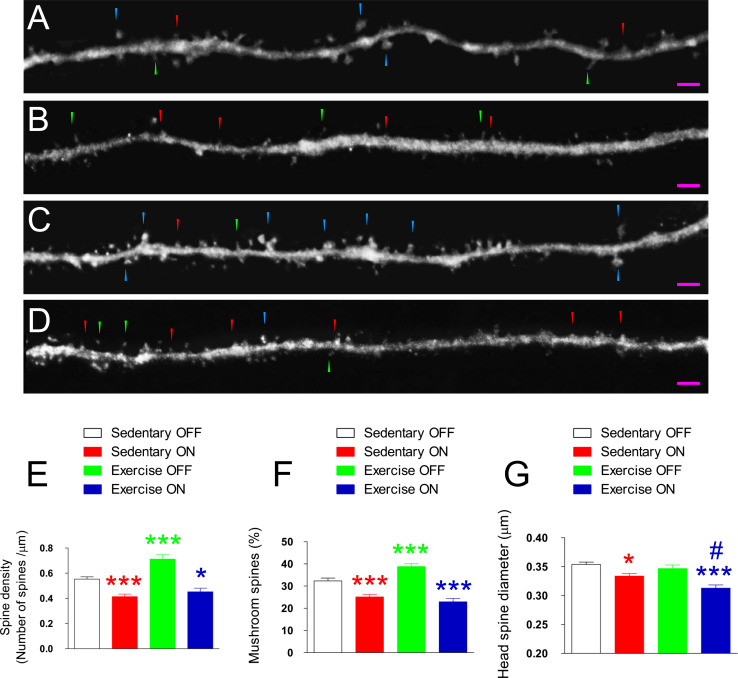Fig. 3.
Retroviral expression of GSK-3β alters the connectivity of newborn neurons. a–d Representative images of fragments of dendrites belonging to sedentary tet-OFF (a), sedentary tet-ON (b), exercise tet-OFF (c), and exercise tet-ON (d) mice. e Quantification of dendritic spine density. As shown, retroviral induction of GSK-3β activity decreased the density of dendritic spines. In contrast, physical exercise increased the density of these structures in exercise tet-OFF mice. Importantly, exercise did not cause any change in the density of dendritic spines in exercise tet-ON as compared to sedentary tet-ON mice. f Percentage of mushroom spines. Retroviral induction of GSK-3β activity reduced the percentage of mushroom spines. Exercise did not counteract these effects in exercise tet-ON mice, but increased the percentage in exercise tet-OFF mice. g Head diameter in the mushroom spines. Retroviral induction of GSK-3β activity reduced the head diameter in sedentary tet-ON mice. This effect was further accentuated in exercise tet-ON mice. Taken together, these data demonstrate that the retroviral induction of GSK-3β activity prevents the stimulatory effects of physical exercise on newborn neurons. Purple scale bar 100 µm, blue triangles mushroom spines, red triangles stubby spines, green triangles thin spines. Asterisks indicate significant differences compared to sedentary tet-OFF mice. Hashes indicate significant differences compared to sedentary tet-ON mice (*0.01 < p < 0.05) (***p < 0.001) (#0.01 < p < 0.05)

